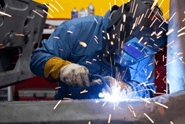Market Data

August 22, 2018
Metalformers Optimistic Despite Tariff Problems
Written by Sandy Williams
Metalforming companies are struggling with higher steel prices and longer lead times as a result of Section 232 tariffs, but are still expecting business conditions to improve during the next three months.
The Precision Metalforming Association’s August Business Conditions Report showed 29 percent of participants expect an increase in economic activity, 62 percent expect no change and 9 percent anticipate a decline in activity. This compares with 24 percent, 53 percent and 23 percent, respectively, in July.
Average daily shipping levels slipped in August, said metalformers. Incoming orders are expected to trend upward in the next three months.
Fewer companies reported workers on short time or layoff in August. The percentage of workforce on altered hours dropped from 6.0 percent in July to 4.0 percent in August. Currently, 59 percent of those surveyed said they are expanding their workforce.
“We continue to closely monitor members’ reports on steel and aluminum prices and lead times,” said PMA President Roy Hardy. “Metalforming companies continue to report higher steel prices and longer lead times as a result of the Section 232 steel tariffs, and express growing concern about lost business opportunities and the growing challenge of competing with European and Chinese companies who pay global (lower) prices for steel. Despite these concerns, our members are resilient and remain positive, as evidenced by their outlook for economic activity and incoming orders.”
This month’s report reflects the views of 112 PMA manufacturing members based on conditions as of Aug. 1, 2018.







